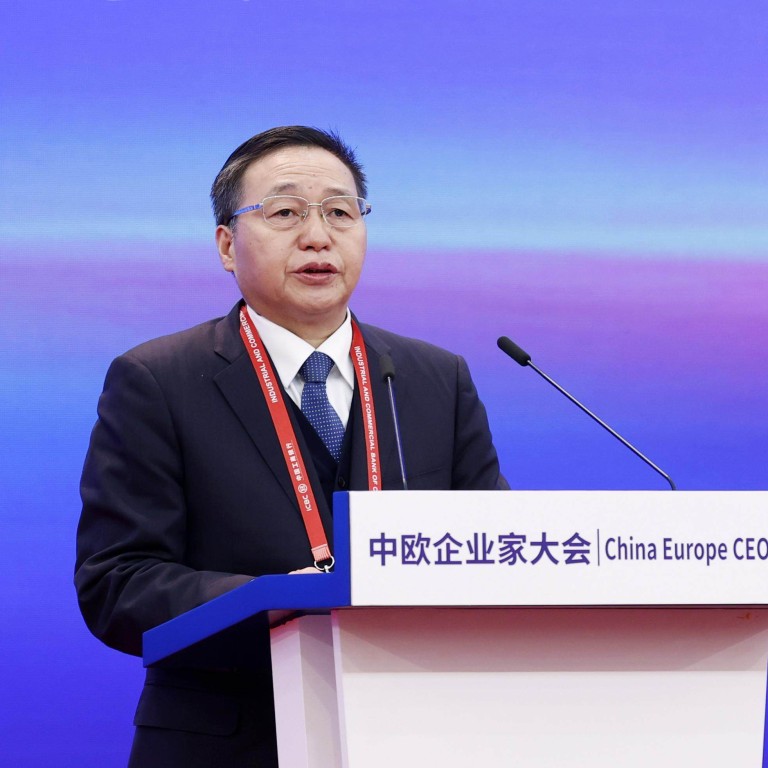
ICBC chairman Chen Siqing resigns as Chinese banking industry undergoes leadership reshuffle
- The world’s third-largest lender by market capitalisation has announced a key change at the top, the latest in a slew of leadership reshuffles in the country’s banking sector this year
- ICBC said Liao Lin, bank president and vice-president of the board, has been elected as the new chairman
Chen Siqing, the lender’s chairman and executive director, has tendered his resignation to the board of directors, with immediate effect, according to a company statement on February 1.
The statement said Chen, 63, was resigning because of his age, that he had no disagreement with the board, and that no matters relating to his resignation would need to be brought to the attention to the bank’s shareholders and creditors.
“During his tenure … Mr. Chen Siqing has performed his duties diligently and conscientiously, always strived for innovation and was keen to make progress,” the statement said. “The board of directors of the bank would like to express its sincere respect and heartfelt gratitude to Mr. Chen Siqing for his excellent contributions to the bank.”
In a separate announcement, ICBC said Liao Lin, bank president and vice-president of the board, had been elected as the new chairman.
Liao’s appointment is subject to approval by the National Administration of Financial Regulation (NAFR), which falls under the State Council, China’s cabinet.
To ensure the “smooth operation and management of the bank,” Liao will perform the president’s duties until a new president officially takes office, the statement said.
The high turnover of senior executives may be down to bosses reaching retirement age as well as a crackdown on corruption and misconduct in the industry, according to Shen Meng, director at Beijing-based investment firm Chanson & Company.
“The government implemented ‘high-pressure cleaning’ of illegal and irregular activities in the financial system, and took stronger measures to regulate the behaviour of financial institutions,” said Shen.
“As the clean-up enters its next stage, and as executives [reach retirement] age, many banks are now seeing vacancies for more senior positions, and hence the recent series of personnel changes.”

